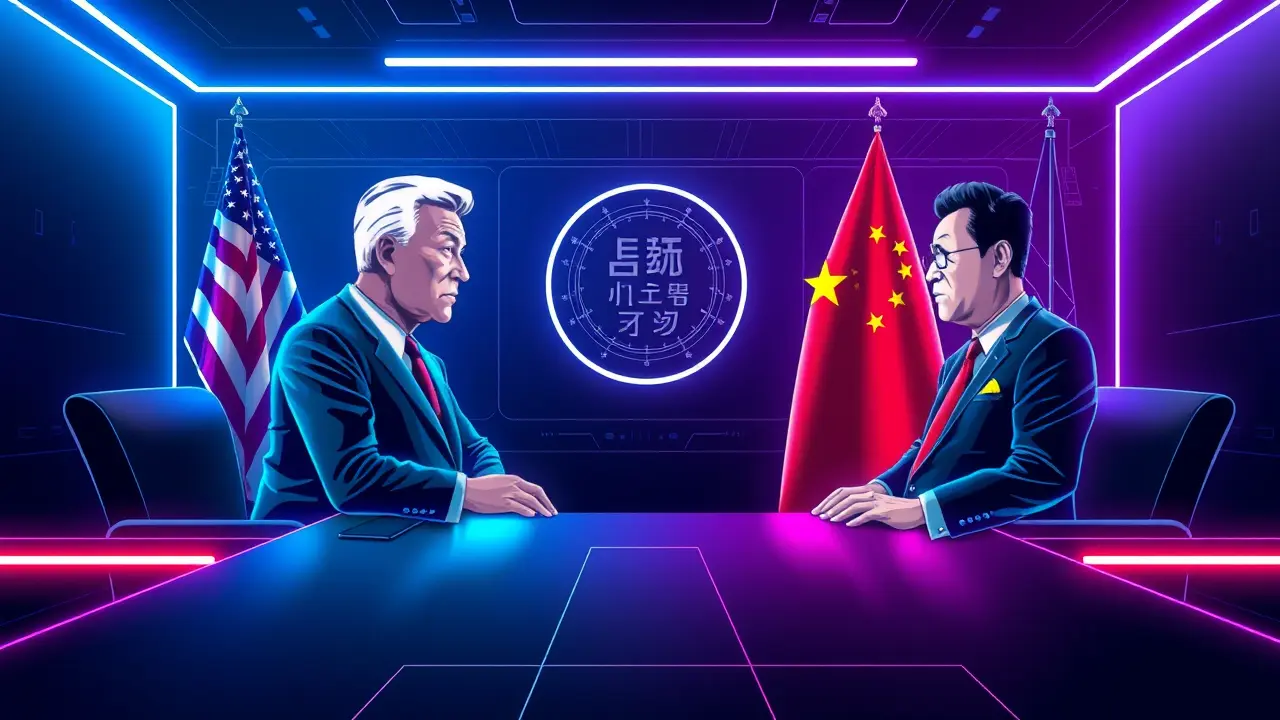
Politicsconflict & defenseMilitary Operations
US and China Hold Defense Talks to Ease Tensions.
RO
Robert Hayes
3 days ago7 min read
In a significant diplomatic maneuver echoing the careful statecraft of a bygone era, the United States and China have initiated high-level defense talks aimed at de-escalating the persistent and dangerous tensions that have characterized their relationship. The inaugural in-person meeting between US Defense Secretary Pete Hegseth and Chinese Defence Minister Dong Jun this past Friday represents more than a mere procedural formality; it is a tangible, albeit fragile, step back from the precipice of potential conflict, coming hot on the heels of a summit between the nations' presidents that successfully lowered the political temperature.Secretary Hegseth’s explicit assurance that the US does not seek conflict is a crucial piece of rhetorical positioning, a line drawn in the sand meant to establish a floor beneath which relations cannot fall, reminiscent of the clear, if tense, communications between superpowers during the Cold War. This development cannot be viewed in isolation.It is the latest chapter in a long and complex saga of geopolitical rivalry, spanning contentious issues from the status of Taiwan—a red line for Beijing—and military assertiveness in the South China Sea to technological warfare over advanced semiconductors and accusations of economic coercion. The strategic calculus for both Washington and Beijing is immense; a miscalculation in the Taiwan Strait or a collision in the air could spiral into a confrontation neither side ostensibly wants but for which both are vigorously preparing.Historically, such dialogues have served as essential pressure valves. The Bush administration's military-to-military exchanges with China in the early 2000s, for instance, helped build a foundational layer of trust that prevented minor incidents from escalating.The current talks, however, occur against a backdrop of profound mutual suspicion, with the US pivoting its military focus to the Indo-Pacific to counter what it perceives as Chinese expansionism, and China viewing these actions as a containment strategy designed to thwart its rightful ascent. Expert commentary suggests cautious optimism is the only prudent path.Dr. Evelyn Rothman, a senior fellow at the Center for Strategic and International Studies, notes, 'The mere fact that they are talking is a positive signal, but the structural drivers of competition remain fully intact.We are in an era of managed rivalry, where the goal is not friendship but stability and the prevention of war. ' The consequences of failure are almost too grave to contemplate, potentially triggering a regional arms race, fracturing global supply chains further, and creating a bipolar world order more divided than at any time since the fall of the Berlin Wall.For this diplomatic opening to yield lasting results, it must be followed by concrete confidence-building measures: the reinstatement of direct commander-level hotlines, agreements on common military protocols for air and naval encounters, and perhaps even tacit understandings on the limits of technological espionage. The world watches, hoping that the sober lessons of history will guide these two giants away from the Thucydides Trap and toward an uneasy but sustainable coexistence.
#featured
#US-China relations
#defense talks
#military diplomacy
#Dong Jun
#Pete Hegseth
Stay Informed. Act Smarter.
Get weekly highlights, major headlines, and expert insights — then put your knowledge to work in our live prediction markets.
Comments
It’s quiet here...Start the conversation by leaving the first comment.
© 2025 Outpoll Service LTD. All rights reserved.